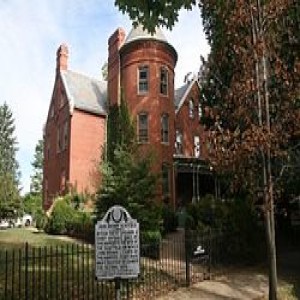
On this day in labor history, the year was 1859.
That was the day John Brown was hanged in Charles Town, Virginia in what is now West Virginia.
He had been sentenced to death on charges of treason, murder and insurrection for his role in the raid on the United States Federal Armory at Harper’s Ferry.
Brown and twenty-one abolitionists intended to seize the arsenal there, then build a free settlement in the Appalachian Mountains.
From there, abolitionists and free people of color would wage a guerrilla war against the slave labor system throughout the South.
Convicted on November 2, Brown resisted plans for rescue and prepared to die a martyr.
On this day, John Brown wrote his last statement: “I, John Brown, am now quite certain that the crimes of this guilty land will never be purged away but with blood. I had, as I now think, vainly flattered myself that without very much bloodshed, it might be done.”
He was marched out of the Jefferson County Jail through a crowd of onlookers that included Stonewall Jackson and John Wilkes Booth to the gallows, where he was hanged.
While many abolitionists distanced themselves from his actions, they defended him and memorialized him after his death.
Fredrick Douglass remarked many years later, “His zeal in the cause of my race was far greater than mine-it was as the burning sun to my taper light-mine was bounded by time, his stretched away to the boundless shores of eternity. I could live for the slave, but he could die for him.”
More Episodes
 2024-10-21
2024-10-21
 2024-10-18
2024-10-18
 2024-10-17
2024-10-17
 2024-10-16
2024-10-16
 2024-10-15
2024-10-15
 2024-10-14
2024-10-14
 2024-10-14
2024-10-14
 2024-10-10
2024-10-10
 2024-10-09
2024-10-09
 2024-10-08
2024-10-08
 2024-10-07
2024-10-07
 2024-10-06
2024-10-06
 2024-10-06
2024-10-06
Create your
podcast in
minutes
- Full-featured podcast site
- Unlimited storage and bandwidth
- Comprehensive podcast stats
- Distribute to Apple Podcasts, Spotify, and more
- Make money with your podcast
It is Free
- Privacy Policy
- Cookie Policy
- Terms of Use
- Consent Preferences
- Copyright © 2015-2024 Podbean.com




